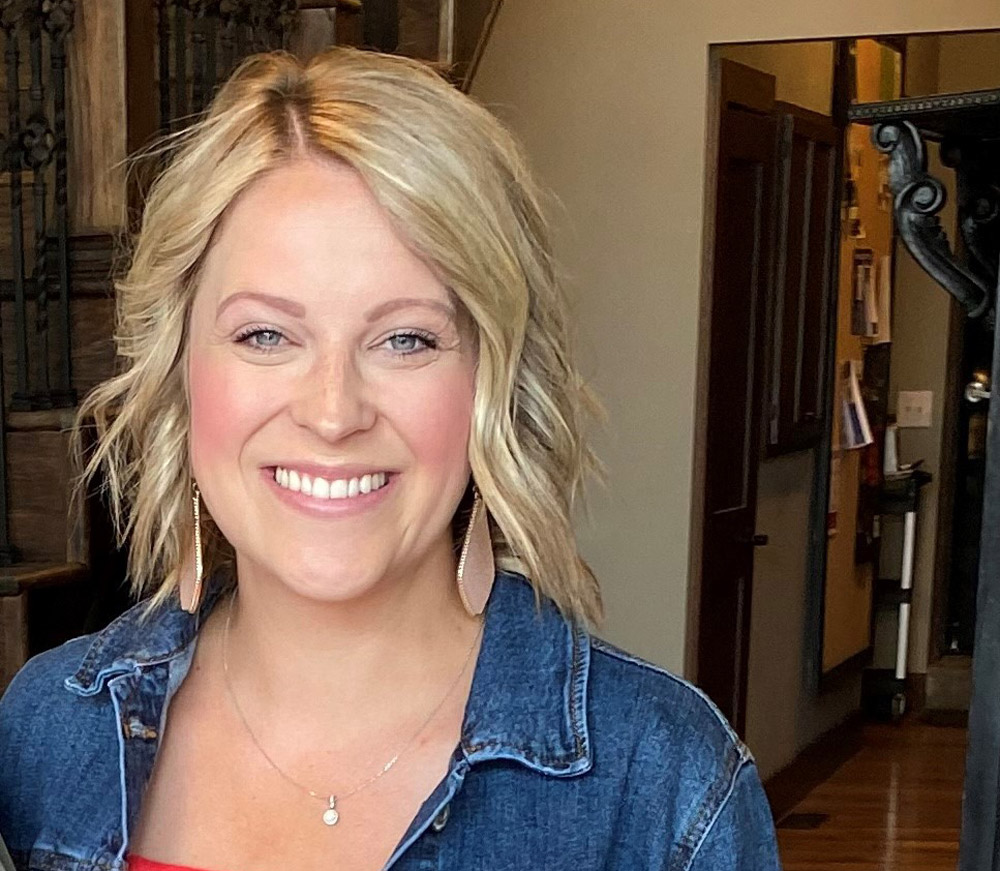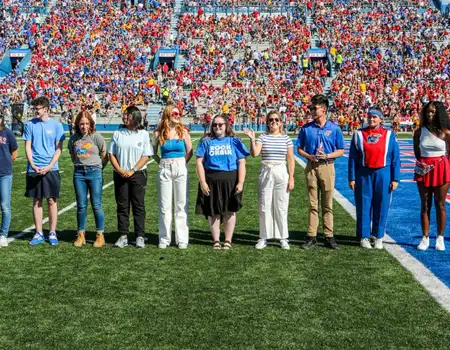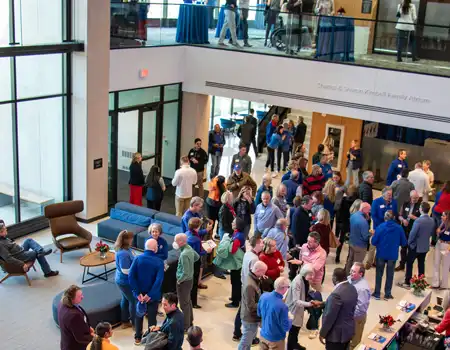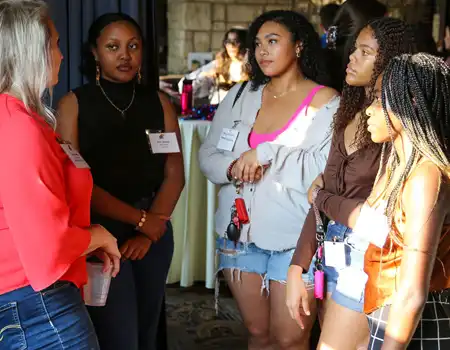Copy the Leader: Abby Dotson
- June 20, 2023
Jayhawks in leadership positions are everywhere you look, including through the Jayhawk Career Network. KU Alumni, in partnership with SumnerOne, is highlighting Jayhawk leaders who are models for others in their industries with our “Copy the Leader” program.
Abby Dotson, PhD’12, is a research assistant professor at the Oregon Health and Science University, Department of Emergency Medicine; and executive director at the National POLST Collaborative.
What do you do in your work?
I received my Ph.D. from KU in immunology and have since transitioned to working in digital health innovation, policy and education for programs related to serious illness care. I’m an Assistant Professor of Emergency Medicine at Oregon Health and Science University, Director of the Oregon POLST (Portable Orders for Life-Sustaining Treatment) Registry (OPR), and Executive Director of the National POLST Collaborative (NPC). The National POLST Collaborative provides best practice guidance about the POLST process, form and technology as well as education throughout the U.S. In my role at OPR, I oversee the operations and ongoing technology development of a secure, statewide digital health platform that allows health care professionals treating a patient access to end-of-life medical orders in a crisis. As an Assistant Professor, I conduct and support serious illness research centered around POLST use and outcomes and I’m passionate about using data to drive healthcare policy and education.
I still love basic sciences and find that I use the skills from my Ph.D. training every day. I get to help develop nationwide healthcare data standards for POLST, perform research on the nation’s largest POLST Registry database and conduct ongoing quality studies that inform serious illness conversation policies. Over the course of almost 20 years my research has evolved from developing therapies and understanding mechanisms of disease to conducting community-based, public health studies.
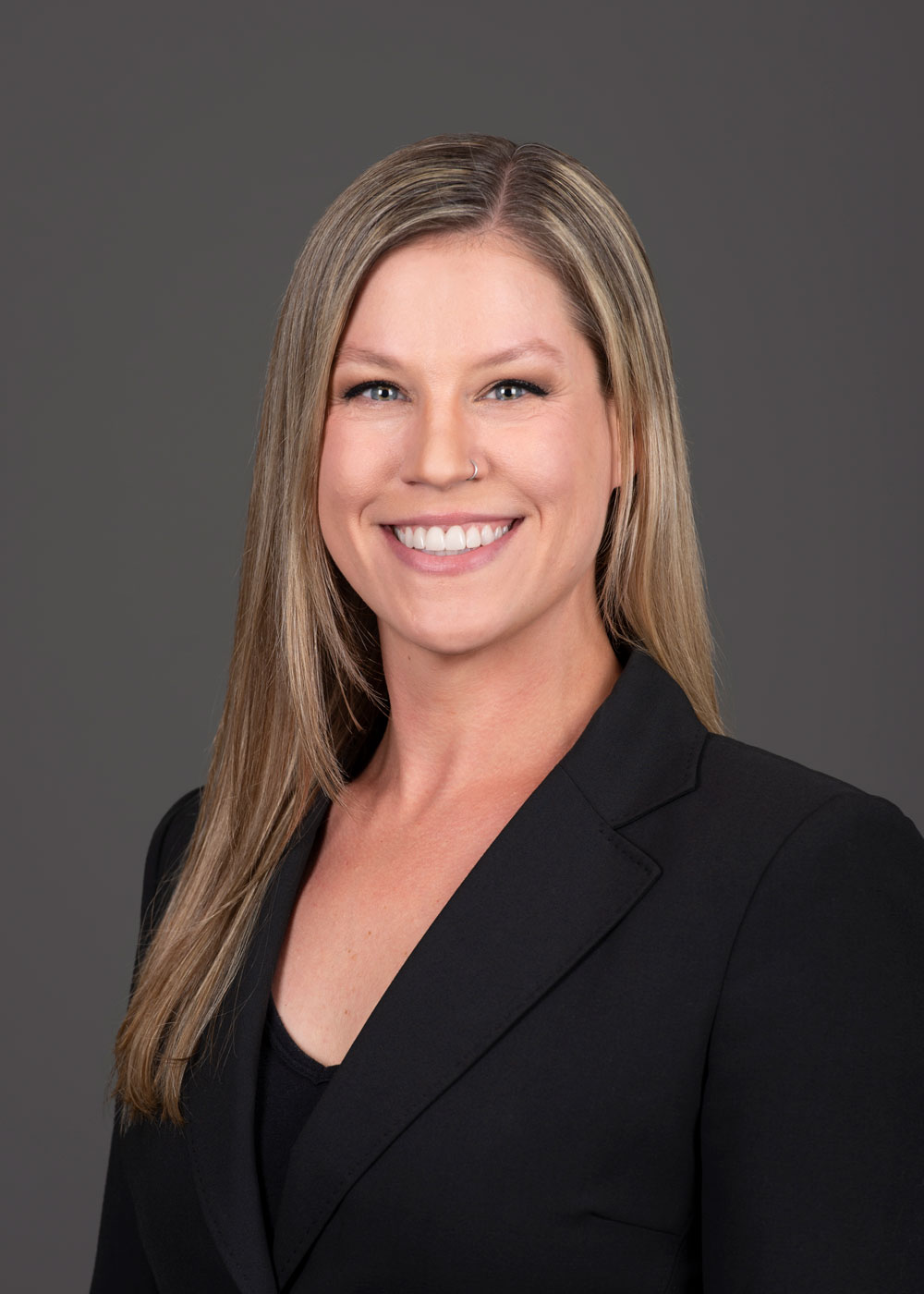
What are the qualities of a good leader?
Love what you do. If you don’t believe in your mission you can’t expect others to.
Be adaptable to evolving environments. Every industry is changing at a rapid pace, especially healthcare. Personal and professional growth is critical to keep up.
Collaborate. What we can accomplish together is almost always better than what we could do alone.
Understand that imposter syndrome is real and trust your knowledge, skills and instinct.
Expect to fail and know that it can be some of your best work – worst case scenario you will learn and grow.
How do you practice leadership at your job?
I’m very honest about my shortcomings to model a realistic view of what leaders look like to my team and peers. I don’t think that leaders need to appear to be perfect, have all the answers or should devote all their time to their job. I know that I’m not always going to be the expert in the room but I have the grit for continual improvement and have no problem asking for advice when I need it. I try to always surround myself with amazing mentors and collaborators. I never hide the fact that I need mental health support and it is crucial for me to be an effective leader. I’m a mom before anything else and I am very forthcoming that I will need to take time off when a kid gets sick and will put work away in the evening to connect with my family.
My Ph.D. mentor at KU, Steve Benedict, taught all of his students more than just science. He called it the “full service education” and I utilize those skills to this day. I’m open with my team about the complex realities of politics in academia, how to navigate difficult partnerships or peers, how to build relationships that foster mutual benefit yet rely on individual strengths, and negotiate with confidence.
I also think it’s important to connect with my team and community on a personal level. I’m open about my personal life and family. I’m a visible, queer role model for my LGBTQ+ community.
What makes a team or group successful?
Diversity. A team that has a range of views and experiences will always develop more innovative and comprehensive solutions than a team where everyone thinks alike.
How can leaders in your industry help their organizations adapt to change?
Leaders in healthcare or any industry can remember that people are at the center of workflows, policies and technology. I often develop workflows and policies from the bottom up – informed by stakeholders at every level have unique, informed and important knowledge of best practices. My entry-level stakeholders can have feedback that is just as valuable as more senior peers, often bringing new ideas, a fresh perspective and out-of-the-box solutions to the table because they’re directly at the interface of potential issues. A leader’s job, on the other hand is to pull together a practical understanding of how to change systems using that knowledge.
Want to receive alumni and career stories like this in your inbox? Subscribe to the Water Cooler, a monthly career newsletter for alumni, students and friends. It includes upcoming events, featured mentors, stories about alumni and students, jobs and more.
The Copy the Leader program is brought to you by SumnerOne. SumnerOne is one of the largest independent office technology dealers in the Midwest, with offices in Missouri, Kansas, Illinois, Arkansas, and Oklahoma. We’re a family of respected companies united by ONE goal: to exceed your expectations and help you get the most from your investments in printing, IT, and document technology.


